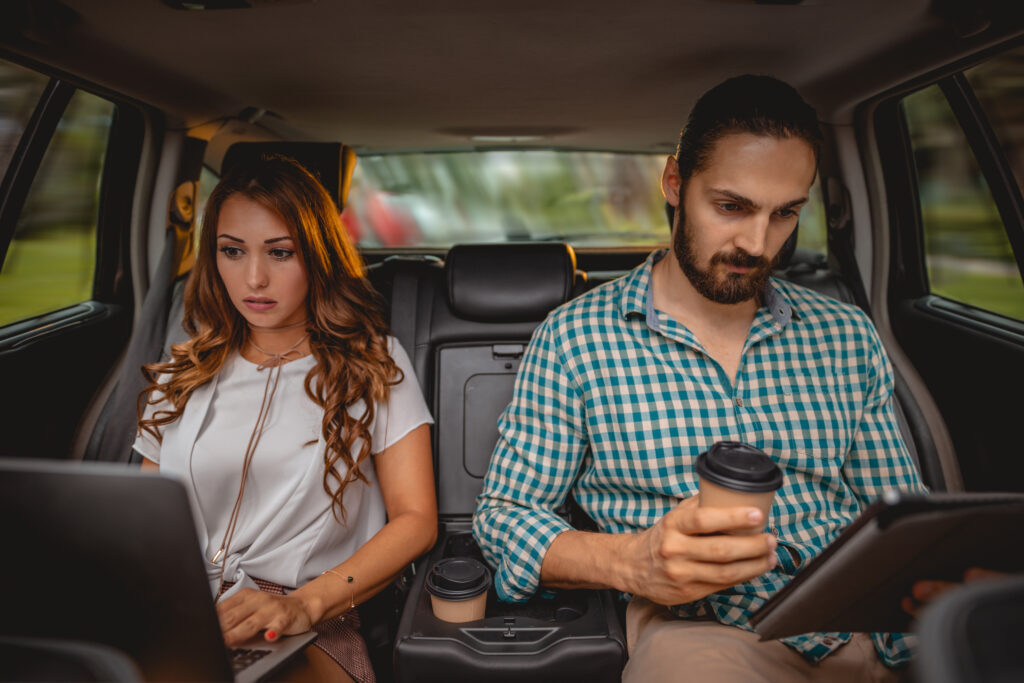With services like Uber and Lyft now part of everyday life in Massachusetts, more people are finding themselves involved in rideshare accidents where a rideshare driver is to blame. But when an Uber or Lyft vehicle is in a crash, who is financially responsible—the driver, the company, or someone else? The answer depends on what the driver was doing at the time of the accident and whether they were actively using the app.
At the Law Office of Steven M. Houde, we help clients navigate these complicated situations. Knowing how rideshare coverage works under Massachusetts law can make a major difference in ensuring that you receive the full compensation you deserve for injuries caused in the rideshare car accident.
How Massachusetts Law Regulates Rideshare Drivers
Under Massachusetts law (M.G.L. c. 159A½), companies like Uber and Lyft are categorized as Transportation Network Companies (TNCs). Their drivers are considered independent contractors, not employees—meaning the companies are not automatically liable for every accident a driver causes.
However, the law requires both the driver and the rideshare company to maintain different levels of insurance coverage depending on the driver’s activity within the app. The key factor is the driver’s status at the exact moment of the collision.
- When the App Is Off
If the rideshare driver is not logged into the app, they are driving as a private individual, not a representative of Uber or Lyft. In this case, only the driver’s personal auto insurance applies.
Example: A driver logs out of the Uber app after finishing a trip and rear-ends another car on their way home. Because they were not “on the clock,” Uber and Lyft’s policies do not apply, and the driver’s personal insurance is solely responsible for covering damages.
- When the App Is On but No Ride Is Accepted
When a driver is logged into the app and waiting for a ride request, both Uber and Lyft provide contingent liability coverage. This means the company’s policy kicks in only if the driver’s personal insurance does not cover the accident or if the coverage limit is too low.
The contingent coverage provides up to:
- $50,000 per person for bodily injury,
- $100,000 per accident for multiple injuries, and
- $25,000 for property damage.
Because this coverage is secondary, victims in this phase often face delays and disputes between insurance carriers. Each insurer may try to minimize its responsibility, which makes having an attorney critical in ensuring fair compensation.
- When a Ride Is Accepted or a Passenger Is On Board
Once a driver accepts a ride request or has a passenger in the vehicle, Uber and Lyft must provide their full commercial insurance coverage. This coverage remains in effect until the passenger exits the vehicle. It includes:
- $1 million in third-party liability coverage,
- Uninsured/underinsured motorist coverage, and
- Comprehensive and collision coverage (if the driver carries these on their own policy).
Example: A Lyft driver picks up a passenger in Newton and is sideswiped by another car while driving to Boston. Lyft’s $1 million commercial policy would cover the passenger’s injuries and related damages.
Understanding Massachusetts No-Fault Insurance
Massachusetts follows a no-fault insurance system, meaning that if you are injured in a car accident—whether in a personal vehicle or a rideshare—you generally start by filing a Personal Injury Protection (PIP) claim with your own insurer. PIP helps pay for immediate medical expenses and lost wages.
However, if your injuries exceed $2,000 in medical expenses or result in significant pain, scarring, or permanent impairment, you can pursue a claim against the at-fault driver and, depending on the circumstances, Uber or Lyft’s insurance coverage.
Common Questions About Rideshare Accidents
Can I sue Uber or Lyft directly?
Typically, no. Because drivers are independent contractors, most claims are handled through the company’s insurance carrier rather than the company itself.
What happens if the driver was “between rides”?
Uber and Lyft’s contingent coverage applies—but only after the driver’s personal insurance limits are exhausted or denied.
How do I know if the driver was using the app?
Uber and Lyft keep electronic records that show when a driver was logged in, waiting, or transporting a passenger. Your attorney can request this data to determine which coverage applies.
Why Having an Attorney Matters
Rideshare accidents often involve multiple insurance policies, conflicting coverage, and corporate insurers who may attempt to minimize payouts. An experienced Massachusetts personal injury attorney can gather electronic trip data, negotiate with insurers, and identify all available sources of recovery.
Attorney Steven Houde has represented Massachusetts auto accident victims for over three decades. He understands the intricacies of insurance law and knows how to hold both drivers and corporations accountable when negligence causes harm.
Protecting Your Rights After an Uber or Lyft Accident
Whether you were a passenger, another motorist, or a pedestrian, being involved in a rideshare accident can leave you facing medical bills, lost income, and uncertainty about where to turn for help.
The Law Office of Steven M. Houde is committed to protecting the rights of Massachusetts injury victims. We can explain how rideshare insurance, liability laws, and no-fault coverage intersect—and fight for the full compensation you deserve.
If you’ve been injured in an Uber or Lyft accident, contact Attorney Steven Houde today for a free consultation. We’ll review your case, determine which insurance coverage applies, and help you recover the compensation you need to move forward.

